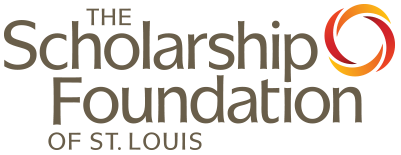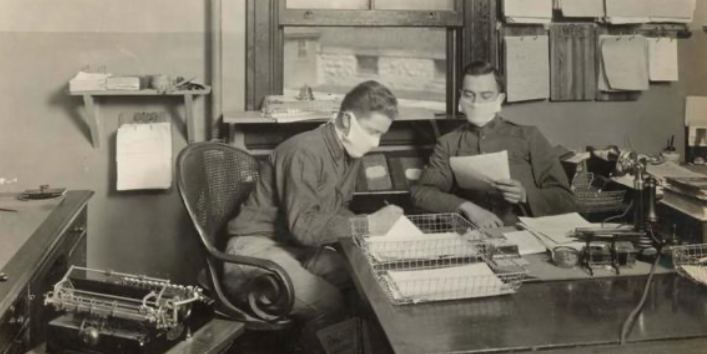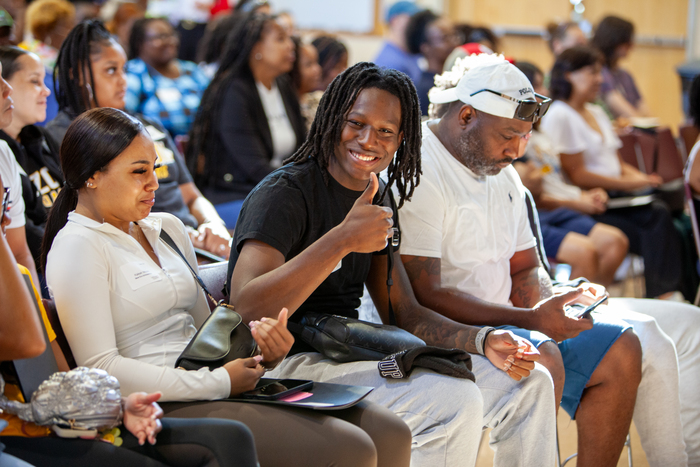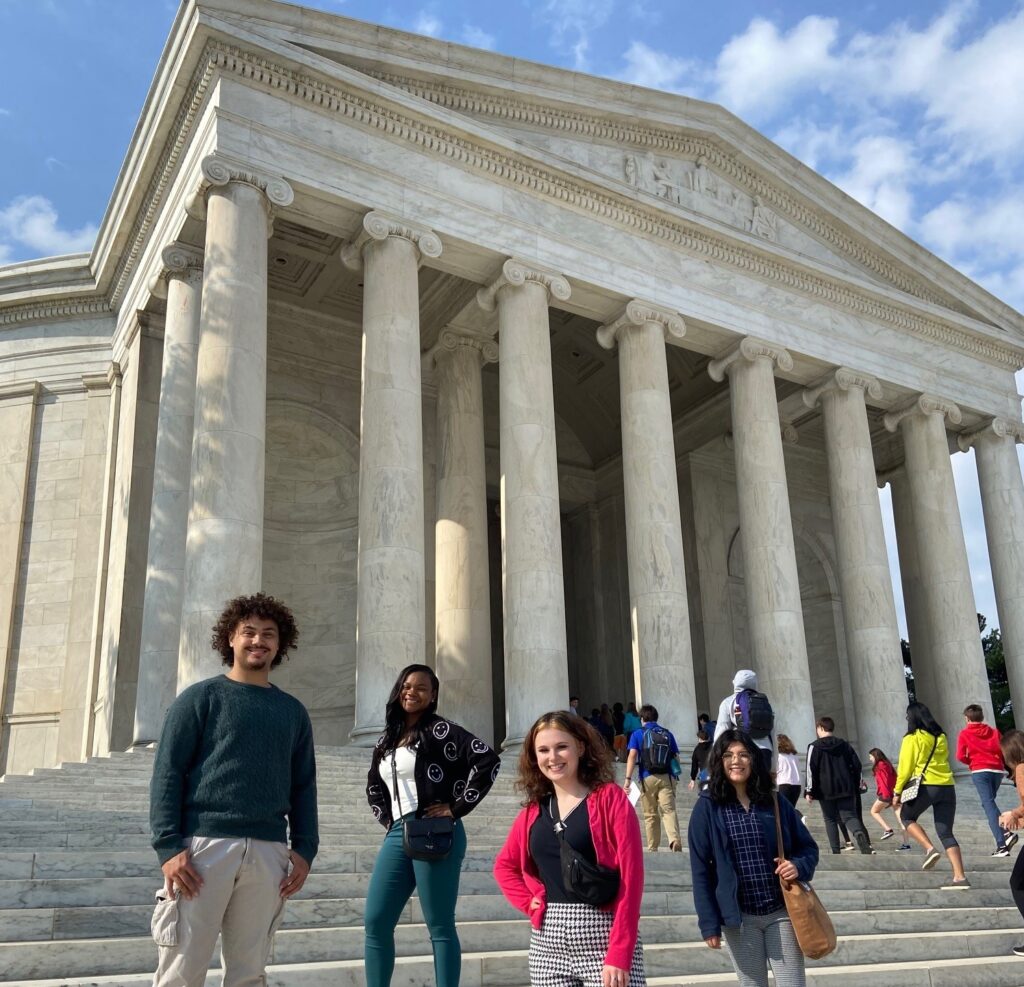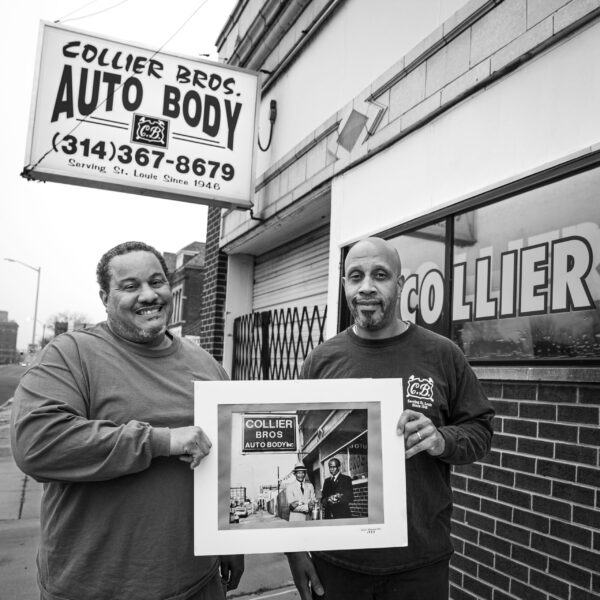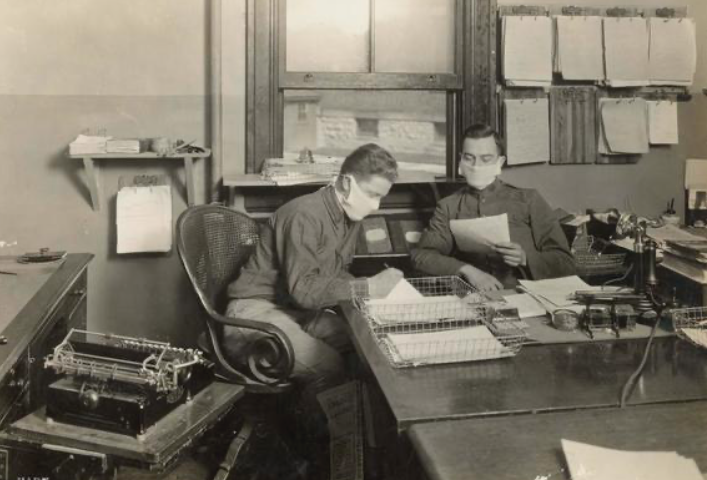
Credit: CBS News
By Buff Buffkin, President, and Faith Sandler, Executive Director
Nothing is the same. Everything is reminiscent. The Scholarship Foundation of St. Louis is putting people first, 100 years old and counting, and strong.
The 2020 year was to be a grand centennial celebration, with events planned and history to regale. Though it surely started that way with the marvelous opening reception for KNOW US and the screening of Big Sonia, by March 13 our offices had closed to the public and a host of emergency measures were put in place to respond to health, safety, and economic realities resulting from COVID-19. Quickly it became clear that our celebration would take different form.
We now work remotely and celebrate by meeting virtually. Our board has responded to pandemic with steadfast focus on the wellbeing of the staff and the students we serve. A majority of 35 voting and honorary members have voluntarily showed up weekly for online chats with the two of us, even as they balance new pressures in their personal and professional lives. All 29 voting members attended yesterday’s online board meeting, tolerated mysterious technological challenges, and still successfully amended bylaws, elected new members and officers, and came to grips with the uncertainties of the current and upcoming semesters for our staff and students.
In the midst of this pandemic we’ve re-learned some things. It turns out that calling this pandemic of 2020 “unprecedented” is not exactly true.
Last week, our staff read “St. Louis and the 1918 Influenza: The Impact of Nonpharmaceutical Interventions”, by Robert Wilson (Missouri Historical Review, Vol 105, Issue 2, January, 2011 ). We recommend the article to you. Deaths in St. Louis from the horribly virulent flu are said to have finally come to a close in St. Louis in the fall of 1919, just a few months before The Scholarship Foundation of St. Louis was founded by a group of women in the parlor of Meta Bettman. Were they wearing masks when they first gathered?
In reading Wilson’s account of 1918-19 in St. Louis, characteristics of community leadership become abundantly evident, and remind us of the way we have and will always work:
TRANSPARENCY, ACCOUNTABILITY – Among the first actions of Health Commissioner Dr. Max Starkloff was to get passed an emergency bill certifying influenza as a reportable disease. Knowing the extent, location, and characteristics of the disease (though frightening) was essential to life saving action. A moment on our website reveals the same is true of our sharing of everything from program data by race to the changes we’ve made in response to the pandemic, and so much more.
SHARING EXPERTISE AND POWER – Early in the declaration of epidemic, Mayor Henry Kiel and the board of alderman deferred to the expertise of the Health Commissioner. They gave Dr. Starkloff the power to do whatever was necessary to stop the spread of influenza. They stood behind his unpopular orders to close public facilities and private businesses, and to keep closures in effect as long as necessary. Our board has invested trust and resources in the expertise of our staff to drive decisions and response to the students and the community suffering the effects of COVID-19. Knowing there is no longer “business as usual”, we have been engaged in tracking the distribution of public dollars and the decisions of universities, giving us growing expertise to stay true to our community, our students, and our mission – even in the midst of unfathomable disruption.
DECISIVE ACTION – In October, 1918, watching and waiting was not an option. Each day of delay in closures and in communicating with the public the symptoms, spread and ways to avoid disease would cost many more lives, as indecision and infighting had already demonstrated in other cities (For more, see: Nonpharmaceutical Interventions Implemented by US Cities During the 1918-1919 Influenza Pandemic). We did not wait for others to lead before we began making microgrants for urgent needs, closed the office, extended application deadlines, suspended loan repayments, reconfigured our programs, and issued public advice about the fall semester when confusion and mixed messages in the media mounted.
PEOPLE FIRST – Throughout the last months of 1918 and well into 1919, those at the helm of the city’s crisis response to pandemic had an obvious and openly stated priority; their purpose was to “save lives—not to worry about commerce” (p.103). We all breathed a sigh of relief as we read that quote from Dr. Starkloff, reflecting on the decisions he had made. We recognized The Scholarship Foundation in those words, once again identifying learning as a lifesaving force for a struggling people and a democracy in deep peril.
COMMUNITY…COMMUNICATION – Within just days of ceding power to the Health Commissioner in October, 1918, St. Louis’ response was multi-sector and community-wide. Unlike Chicago and Kansas City, St. Louis’ public complied with orders from experts and calls for assistance, sharing in sacrifice and success. We’ve worked hard to communicate to our students (current and prospective), our community partners (donors and agencies), and to the broader public what we know and what we don’t yet, and how we will act to preserve the purpose and the human and financial resources of the Foundation, with our vision still trained on the next 100 years.
In studying our region’s response to epidemic 100 years ago, we see the soil in which our organization took root. The Scholarship Foundation of St. Louis is, at the core, an organization of learners. We have established credibility and fostered relationships for a century, positioning us well for this moment.
As we write, we are deeply concerned that some insist on considering this Friday, May 1, to be “Decision Day” or “College Signing Day” for admissions and enrollment commitments to be made by students for next fall. In 1918-19, Dr. Starkloff did not rush to reopen nor did he hesitate to extend restrictions in order to save lives. One hundred years later and guided by our predecessors, we are not willing to pretend that campuses are safe or business as usual is healthy, nor push people into dangerous debt or poorly prepared learning environments (on campus or virtual) without much deeper research on the field and on each and every school our students hope to attend. Our data, programmatic and financial, are and will continue to be transparent and we will be accountable to a community that has trusted us with the most valuable resource there is, the wellbeing and the potential of the people.
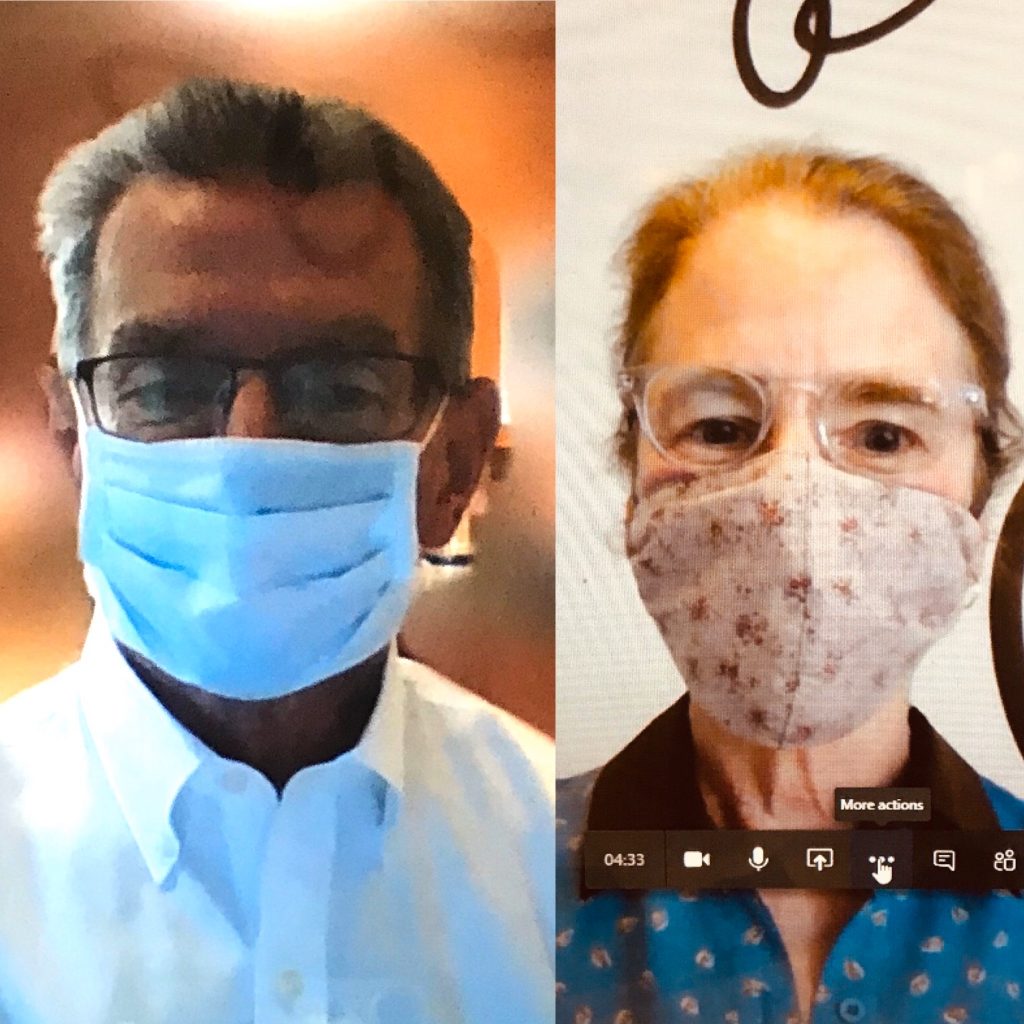
Buff Buffkin, President and Faith Sandler, Executive Director, at work in masks and virtual meetings.
